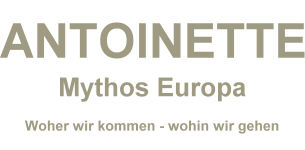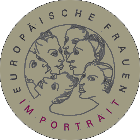

The ‚gestaltete Figur‘, the designed, shaped figure in the fine arts in Europe has been a means of transportation of important messages for survival throughout centuries. Again and again it has been re-interpreted individually and time related to its époque. Europe has wonderful witnesses of its cultural performance: symbols of incredible beauty, which have been born out of deep desperation and heavy pains. Sculptors, painters and architects have shaped the objects, the houses, the palaces and gardens, the sculptures and paintings, whose formal language still gives orientation to the search for a measure of beauty worldwide. This beauty is also the result of many serious conflicts over the centuries, of many wars, many struggles for power and of exploitation. They contributed to the creation of the other, the beautiful, side of Europe. Affluence and wealth have allowed developing a wonderful culture and cultural landscape, many traces of the struggle for true art are visible, traces, which are deeply rooted in our collective consciousness.
We stem from an eternal war, which seems indefinite, from a terrible world of extinction.
Along this joint way we have discovered, through our cultural development, beauty, love, attentiveness and peace.
The painter ANTOINETTE uses free association in her paintings. Do I let myself being touched by these subjective pictures? What do I find beautiful? Which role does profundity play in it? Can I stand to cry while laughing, to perceive the painful ugly in the beauty? Can I bear our historic past? Can I bear the mistakes of the presence? And how do I deal with negative emotions such as anxiety, annoyance, disgust and anger? Can I live with a future which creates fear because one cannot prepare for it? Can a bear an art which offers to be an instrument to deal with these questions?
Europe stands, as already often in history, at a cross road. It will become easy loot for global interests if it falls apart like a divided large family. But it can also emerge stronger from the process of reflections of its own roots and strengths as an influential and united force.
The artist
The pictures of ANTOINETTE move, polarize, make concerned, are figurative and hence concrete, tell stories and create unusual perspectives. This makes them the ideal start for a social debate on European Identity and the Future of Society on this continent. The scenes and stories are on purpose not told till the end. They leave room for interpretation, for an individual perspective on every day topics and the major issues of our time.
ANTOINETTE provides her inner pictures, which can be interpreted as reflections and feedbacks to the situation of our society. Mythological elements span the arc back to the origins of our joint roots on this continent Europe. She takes up the traditions of European painting, in order to point also at this story of history: art as the communication across generations, language barriers and country borders.
The painter ANTOINETTE is a representative of the „Leipziger Schule“. Her pictures and her visual expression are in the tradition of her teachers Heisig, Mattheuer und Tübke. Since the German reunification, ANTOINETTE deals with the cultural identity of the European continent as an artist. This has resulted in an extensive opus of paintings, which content wise can hardly be surpassed by actual daily reality.
